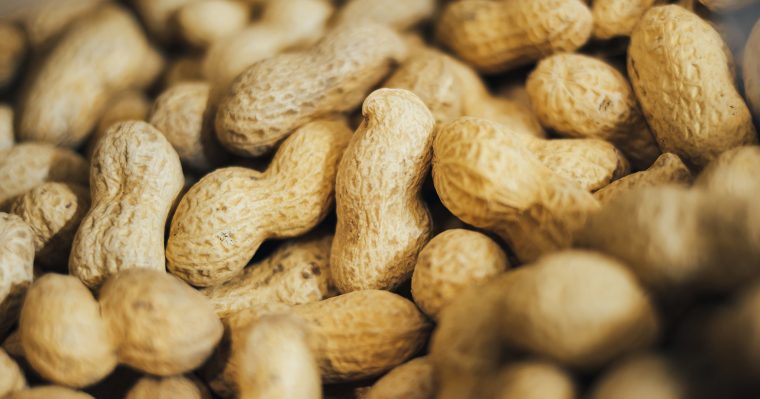Peanut Oil in Skincare – Benefits with Limitations
While peanut oil is commonly used in our diet now-a-days, little did we know that it was originally used for skincare in history. Peanut oil is also known as groundnut oil and arachis oil. It is the oil extracted from the seed kernels of Arachis Hypogaea (peanuts). It has a light color, mild scent and a slightly beany and nutty flavor.
History of peanut oil
Arachis Hypogaea is a leguminous crop that is native to South America. There is some evidence that its traditional cultivation dates back to as early as 2000-3000 BC. While also used in cooking in a few cultures, traditional usage of peanut oil was majorly cosmetic – as a sunscreen and as a treatment for dry skin conditions.

While peanuts have been cultivated for centuries, their economic advantage has increased only in the past century as oil extraction processes became more mechanized and the advantages of peanut oil became more widely recognized. Around the 1850’s, several oil mills in France started importing peanuts for crushing from West Africa. Because of its excellent quality and potential, peanut oil crushing mills were soon established in countries across Europe and then all across the world. This drove prices down, making it more accessible.
Also, the popularity of peanut oil increased manifold after WWII because of the shortage of other oils and how peanut oil served as an easy and ready replacement for them.
The current world economy of peanut oil
Peanut oil is produced on a significant basis in over 30 countries with an estimated production figure of more than 6 million tons – 65% of which comes from 2 countries – China and India.
Today, peanut oil accounts for about 7-10% of the total vegetable oil in the world market. Its global production has been on the steady climb in the last decade – 5.2MMT (million metric tons) in 2010/11 to 6.05MMT in 2019/20.

The chemical composition of peanut oil
The main fatty acids found in peanut oil include unsaturated acids like Oleic acid or omega-9 (41.3 to 67.4%) and Linolenic acid or omega-6 (13.9-39.4%) Higher the ratio between Oleic and Linolenic acid, higher the oxidative stability of the peanut oil and therefore, longer its shelf life.
The saturated fatty acids include Palmitic acid (7.4-12.5%) and smaller quantities of Arachidic acid, Behneic acid and Lignoceric acid. The oil also contains Phytosterols and Tocopherols which are antioxidants. Peanut oil is rich in Vitamin E, known for its many health and dermatological benefits.
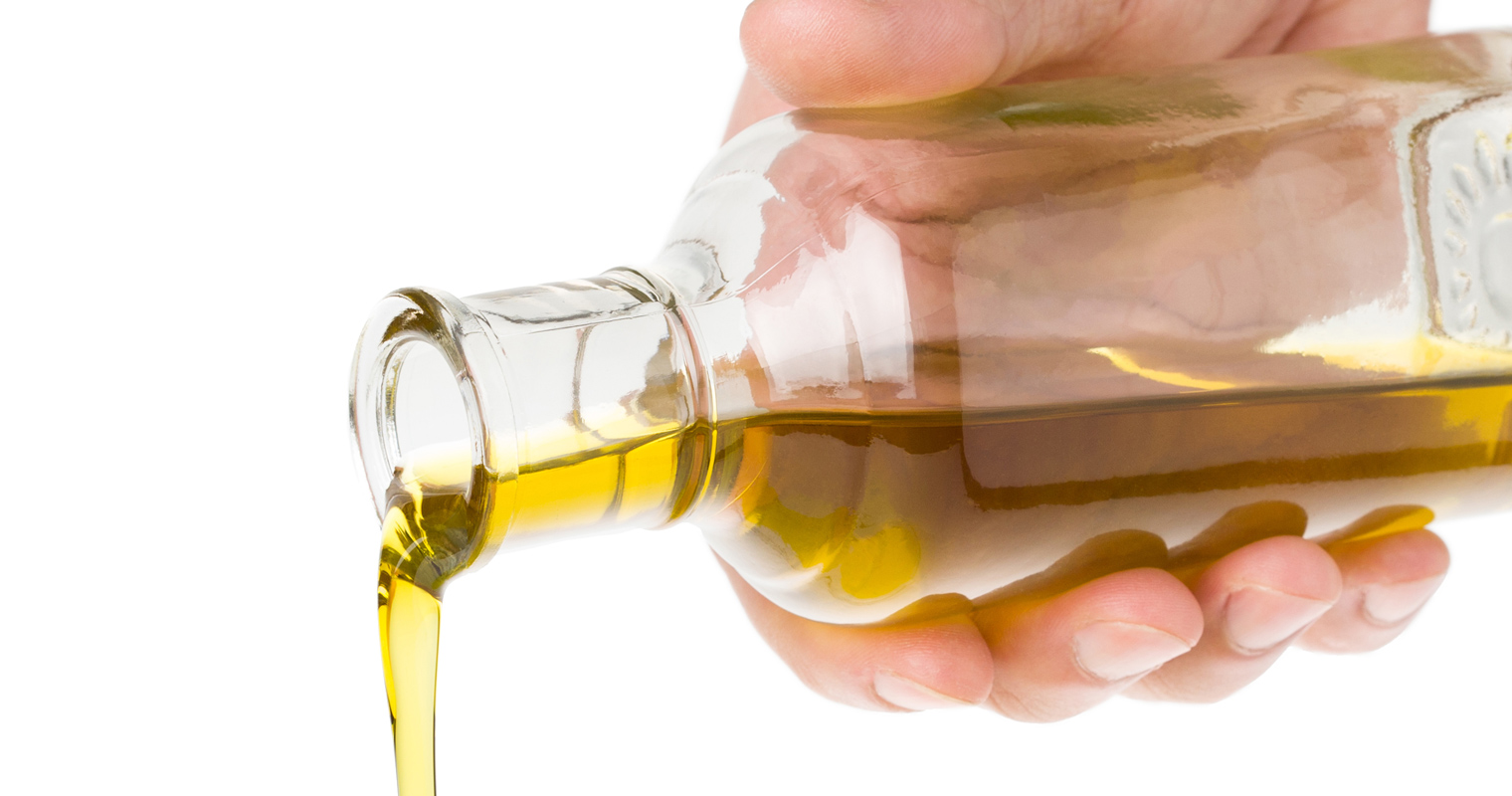
Extraction and refining of peanut oil for the skincare industry
Peanut oil is produced from peanut kernels by the process of extraction and refining. This process majorly determines the quality and life and, most importantly, the cost of peanut oil which define its use in the skincare industry.
Extraction
The cultivated peanut kernels are preprocessed to remove dirt and low-quality kernels that may spoil the oil and reduce its life. The kernels have a 45-55% oil content which can be extracted upto 0.5% depending on the efficiency of the extraction equipment and processes followed.
Hot-pressing
Most of the peanut oil for the skincare industry is extracted by hot-pressing at temperatures above 120 degree Celsius which allows greater yield while also ensuring lesser peanut proteins partition into the oil. However, hot-pressing subjects temperature sensitive nutrients to high temperature and may reduce the quality of the oil.

Cold-pressing
While in lesser demand, cold-pressed oil is produced in smaller quantities by pressing at temperatures less than 60 degree Celsius. This process requires special equipment that is expensive, which adds to the cost of the product. However, it preserves the temperature sensitive ingredients. Cold-pressed peanut oil is more commonly used by itself as a cleanser and moisturizer rather than being mixed in products.
Chemical extraction
Once pressed, the remnant peanut cakes are subject to chemical or solvent extraction using compounds like Hexane which further removes the peanut oil from the kernels up to 0.5-0.7%.
The extraction process produces crude oil which is then filtered and refined.
Filtering and refining
This process involves the removal of oil-soluble impurities from the crude oil through bleaching, de-colorizing and de-odorizing. Hydrogen atoms are added to increase the oil’s stability, thickness and ease of spreading which are crucial characteristics in skincare products. The degree of hydrogenation adds cost to the production which is why many production units skimp on it to produce only partially hydrogenated oil.
Refining plays a crucial role in determining the safety and shelf-life of peanut oil and therefore the shelf life of the skincare product it’s going to be used in. Improper refining is a major concern because it leaves behind traces of peanut protein and toxins which are responsible for allergies and diseases.
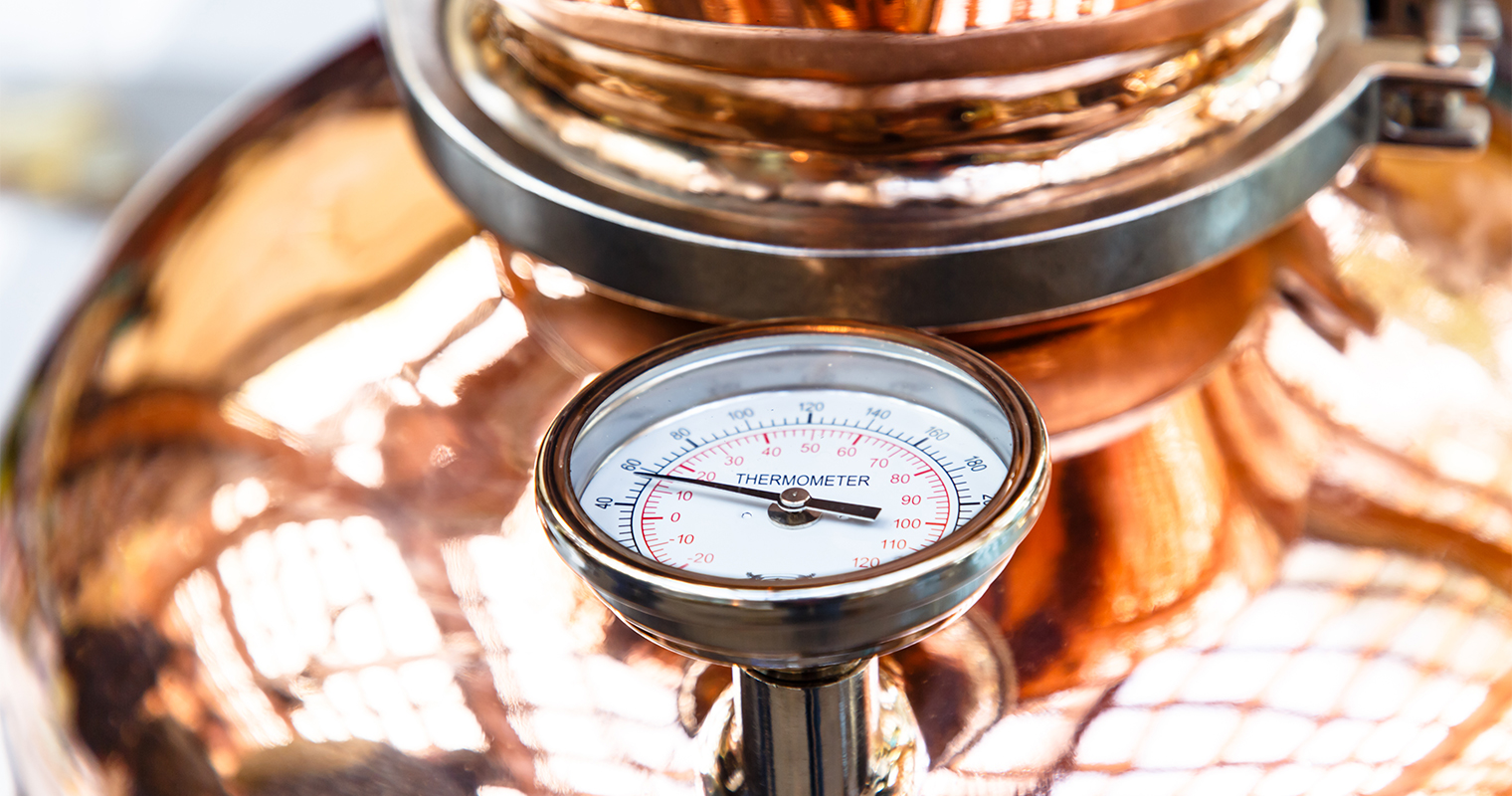
Why is peanut oil used in skincare?
Dermatological properties of peanut oil
Peanut oil offers a number of useful properties that can be used in the skin and hair care industries and these include
Moisturizing properties
Peanut oil has traditionally been used as a moisturizer to alleviate conditions like psoriasis and eczema. It has a heavy, greasy texture that leaves a sheen on the skin and treats dryness by deeply moisturizing it. Peanut oil, with its occlusive, humectant and emollient properties, makes for a complete moisturizer and is therefore an excellent addition in several skin care products.
Occlusives – Moisture Retaining
Occlusives are moisturizing compounds that slow down or prevent water loss from the skin due to evaporation, by forming a protective film on it. Lanolin is the main compound responsible for the occlusive properties of peanut oil.
Humectant – Moisture Attracting
Humectants reduce drying effects of soaps and alcohols in skincare products by attracting and extracting water molecules from the air and keeping them close to the skin’s surface. In this way, they recharge dry and dehydrated skin. The rich triglyceride content of peanut oil makes it an excellent humectant.
Emollient – Skin Smoothening
Emollients are moisturizers that condition and soften the skin without adding moisture to it. They do this by filling in the gaps between the skin cells thereby making the skin more flexible and ridding it of dry patches. Linolenic acid, stearic acid and oleic acid are the main components of peanut oil that make it a rich emollient.

Cleansing properties
Deep cleansing with peanut oil is an excellent alternative to alcohol cleansing as it does so without leaving the skin dry and dehydrated. It readily dissolves dirt, makeup, blackheads and sebum (oil produced by the skin) that clog the pores. It is therefore also effective in protecting the skin against acne breakouts.
Antioxidant and anti-aging properties
Vitamin E and phenols in peanut oil help neutralize free radicals and therefore fight aging. Vitamin E also encourages cell repair and rejuvenation making the skin healthy and radiant.
Anti-inflammatory properties
Peanut oil relieves and calms skin of minor irritations and reduces redness and itching caused by dry skin.
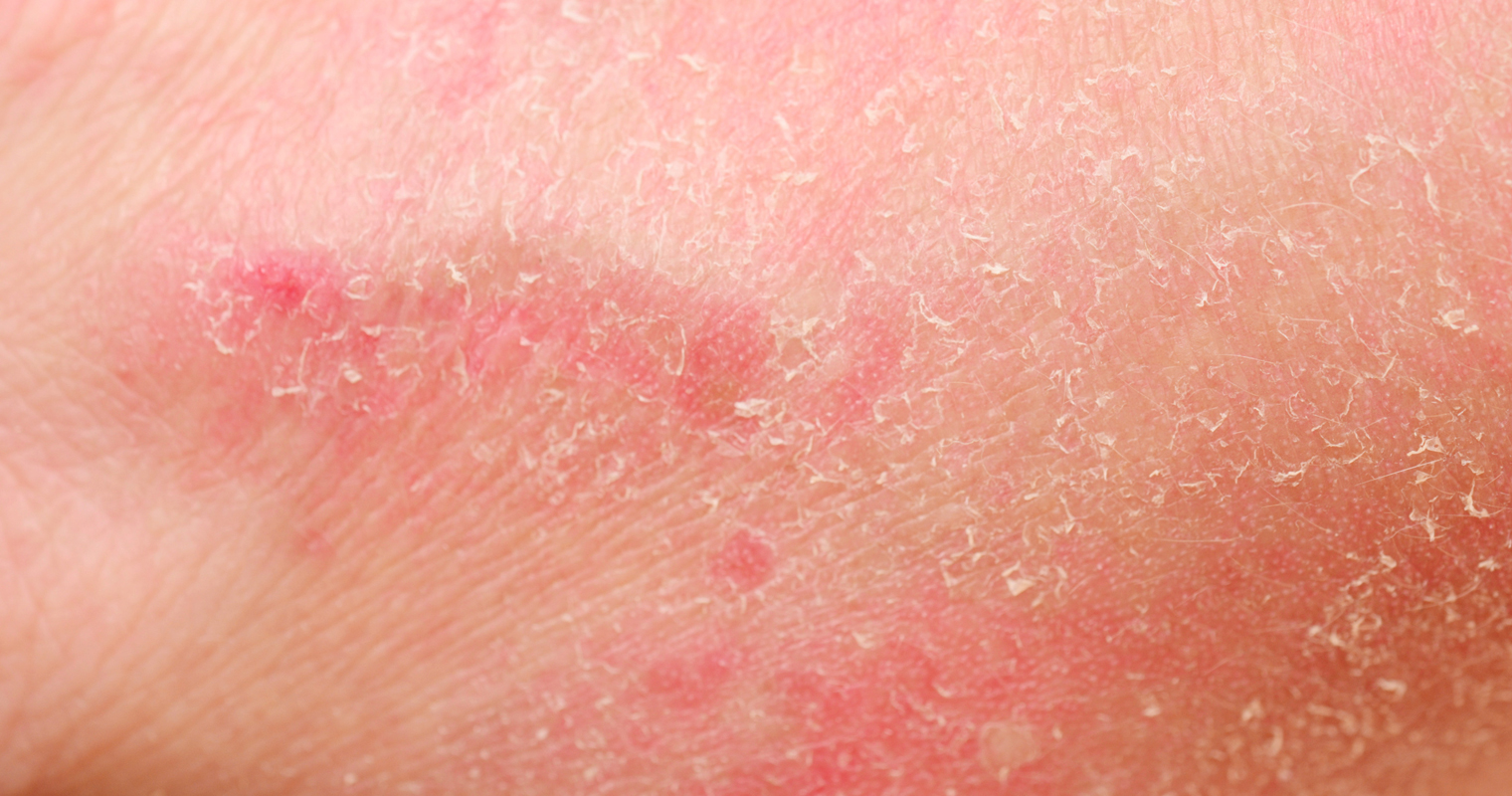
Saponifiable properties
Peanut oil adds a very creamy, stable and long lasting lather to soap. Its moisturizing and cleansing properties also make it a valuable addition.
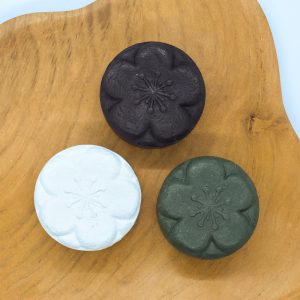 BLACK PAINT’s collection of cleansing soaps use peanut oil as an ingredient to provide deep cleansing without leaving the skin dry. Rich in antioxidants from peanut and other oils, they also have an anti-aging and anti-wrinkle effect making the skin feel young and radiant. While also helping fight acne breakouts, the moisturizing properties of peanut oil ensure that these soaps are excellent for dry and sensitive skin types.
BLACK PAINT’s collection of cleansing soaps use peanut oil as an ingredient to provide deep cleansing without leaving the skin dry. Rich in antioxidants from peanut and other oils, they also have an anti-aging and anti-wrinkle effect making the skin feel young and radiant. While also helping fight acne breakouts, the moisturizing properties of peanut oil ensure that these soaps are excellent for dry and sensitive skin types.
Economical aspects
Cheap and reliable availability
Peanut oil has a massive market in the food industry because of its versatility in cooking and the many health benefits it offers. It has a smoke point of 230 degree Celsius which allows its use in frying and sauteing while also being used in sauces, margarine and food flavourings. Because large scale production results in Economy of Scale, it is available at a cheap price.
Ease of production
Cultivation of peanuts is relatively easy and sustainable. Since the crop is a legume, it is used to nitrogen-fix the soil to replenish its nutrients. Peanut is also a staple crop that thrives well in tropical climates. A number of developing countries have massive areas allocated for peanut cultivation, producing large yields which are exported at cheap prices.

The extraction and refining processes are also relatively easy with minimal investment costs with high yields and useful byproducts. The peanut kernels have an oil content of 45-55% which can be extracted up to 0.5%.
From the above 2 reasons, peanut oil becomes readily available and it became a popular ingredient in skincare industry.
Limitations in the use of peanut oil in skincare
Poor manufacturing quality in removing allergens
Peanuts are known for their notoriety when it comes to allergies. While they cause anaphylactic reactions in those that are sensitive, hydrogenated peanut oil and its derivatives like peanut acid and glyceroids don’t have the same effect since the protein responsible gets partitioned out in the extraction and refining process. However, as mentioned in previous section, hydrogenation is a costly process. In events that manufacturers try to save cost, poorly performed hydrogenation leaves traces of allergy causing elements.
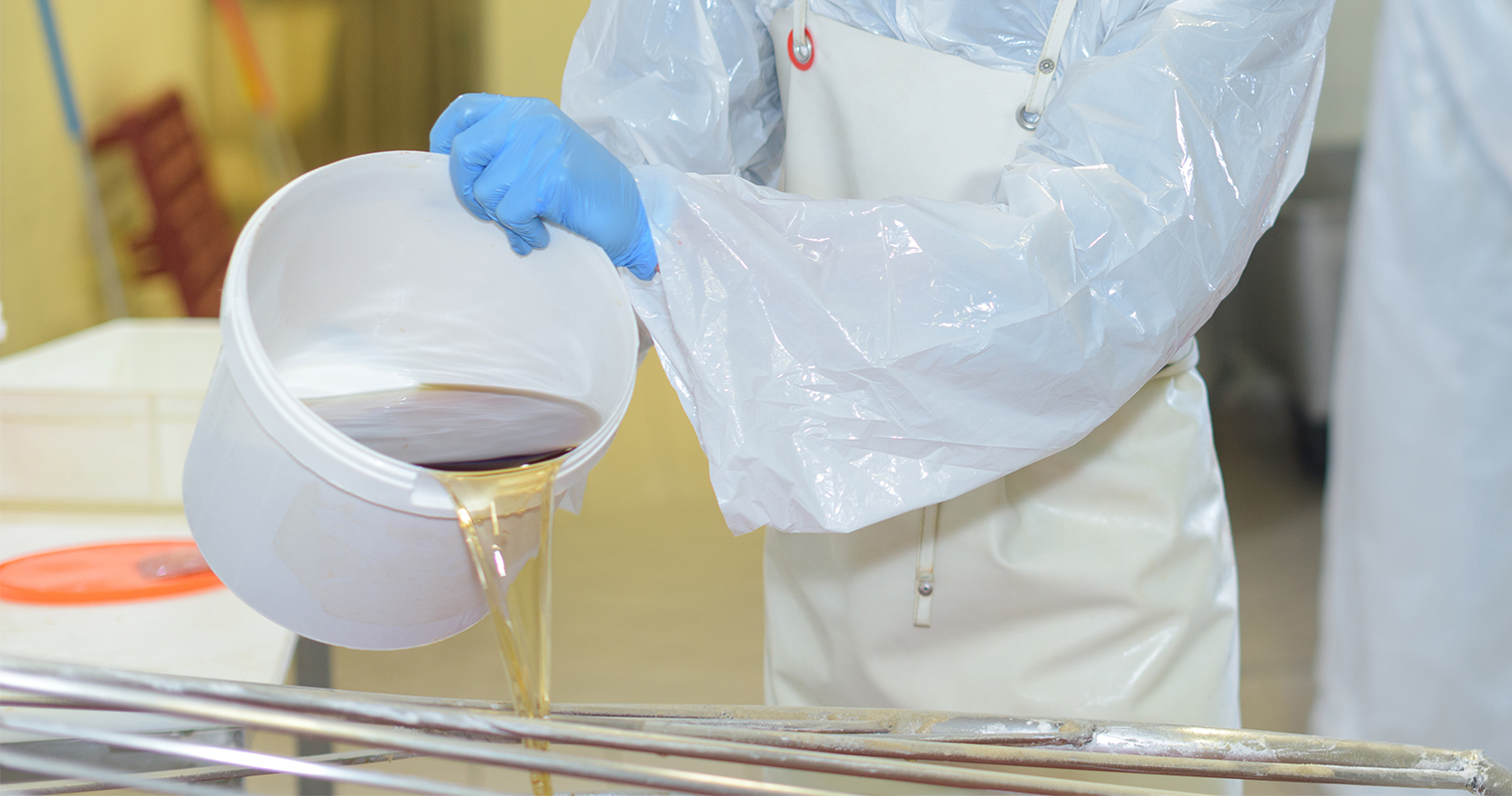
Safety of individuals sensitive to peanut allergies
Toxicity, carcinogenicity, mutagenicity, reproductive and sensitization studies were conducted by the CIR (Cosmetic Ingredient Review) Panel on the safe usage of hydrogenated peanut oil and its derivatives – glycerides and fatty acids – as an ingredient in cosmetic formulations. While animal studies with the use of technical grade refined peanut oil revealed mild dermal irritation, human trials showed none. In 2017, The CIR Panel included peanut oil in the list of 244 plant-derived oils for their safe usage in cosmetics as per current practices.
Despite the CIR, there were differing opinions raised by several member states of the EU. Their prime concern was that people who are sensitive to allergies, upon oral consumption of peanuts, could also be at risk upon skin exposure to cosmetics containing peanut oil. As a response to these concerns, EU’s SCCS (Scientific Committee on Consumer Safety), based on documented safe levels of peanut protein oral intake by sensitive individuals and on the industry’s ability to refine peanut oil to an extent of 0.5 ppm (parts per million) and below, declared that this would be the acceptable threshold for peanut oils. As long as the peanut protein content is kept below 0.5 ppm, peanut oil should therefore be allergen-safe for use in skincare products.
Peanut oil and aflatoxin poisoning
Aflatoxin is a potential carcinogenic compound produced by certain species of the mold-Aspergillus which invade peanuts during cultivation. It associates with the protein in peanuts and is therefore eliminated to a huge extent in the refining process. However, there is still some risk of contamination, especially given that there is no adequate analysis of the refining processes carried out in the developing countries.

Peanut oil and hexane poisoning
Hexane is a petroleum byproduct, commonly used as a chemical solvent in the extraction and refining of peanut oil. Studies identify it as a potential neurotoxin. With the lack of specific regulations to limit the amount of hexane used in the production, there is no quality control and there could be traces of hexane left behind in the product.
Rancidity
Because peanut oil contains unsaturated and polyunsaturated fats, it has a tendency to go rancid upon exposure to light and moisture. This limits the shelf life of peanut oil and its products. While highly hot-pressed refined oil can last 1-3 years in packed condition and 6 months to a year once opened, cold-pressed peanut oil lasts only about 6 months. Rancidity is one major factor that limits the preference of peanut oil in moisturizers.
Also, peanut oil used in soaps is one of the causes of DOS (dreaded orange spots) which are basically caused by the oxidation of the unsaturated fats.
Are all peanut oils created equal?
Considering the risk from contamination of proteins and toxins, the quality and safety of peanut oil may vary depending on the method and efficiency of the extraction process, the equipment used and the safety protocol followed by the specific refining unit.
Also, in developing countries, where a major chunk of peanut oil is produced, there is limited analysis of the peanut oil raw product and refining process to ensure a safe product.
BLACK PAINT recognized the benefit of peanut oil in skincare, while also acknowledged the downside of it, especially in the aspect of allergies. Therefore, it takes steps to only use premium grade peanut oil from authentic sources to ensure of its safety and efficacy. Despite a higher cost, BLACK PAINT believes that its customers deserves nothing but the best.
References
http://www.soap-making-resource.com/peanut-oil-for-soap-making.html#:~:text=Using%20peanut%20oil%20for%20soap,from%20source%20to%20source…
https://books.google.co.in/books?id=ngwEAAAAMBAJ&pg=PT70&dq=%22peanut+oil%22&hl=en&sa=X&ei=NkITT82XKInTiAKWw9ilDQ&redir_esc=y#v=onepage&q=%22peanut%20oil%22&f=false
https://www.academia.edu/34470553/Groundnut_Peanut_Oil
https://pubmed.ncbi.nlm.nih.gov/11558642/
https://www.cosmeticsinfo.org/cir
https://www.wageningenacademic.com/doi/pdf/10.3920/WMJ2017.2279
https://www.livescience.com/55267-why-does-oil-go-rancid.html
https://www.wageningenacademic.com/doi/pdf/10.3920/WMJ2017.2279
https://journals.sagepub.com/doi/pdf/10.1080/10915810160233776
https://naturalology.wordpress.com/2013/11/05/peanut-oil-benefits-for-hair/
https://www.leaf-juice.com/cleansing-face-oil-and-why-is-it-so-good/
https://www.linkedin.com/pulse/what-do-emollients-occlusives-humectants-have-your-skin-skelly/


